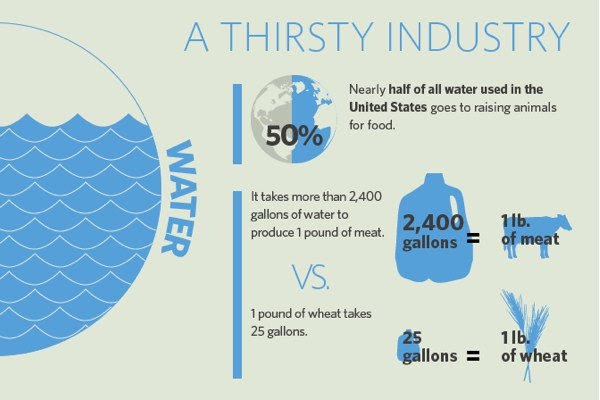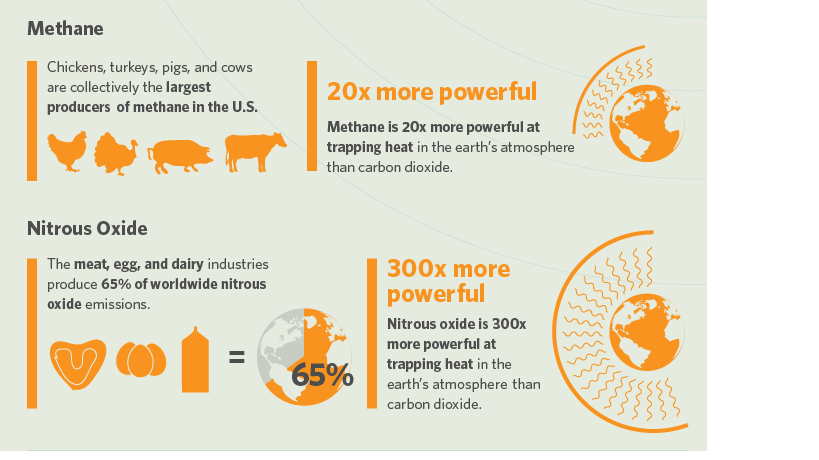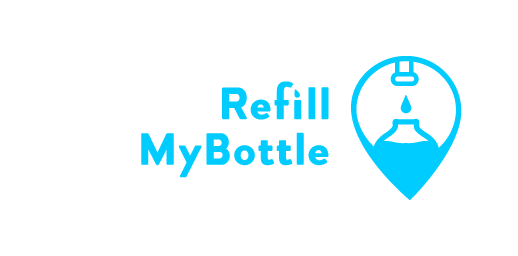T
here is no doubt that the environment is a pressing concern most people are aware of. Climate change, the meteorologic events happen to be stronger and occur more often which lead to harmful consequences. Who would have thought that our diet can actually impact the environment? In this article, we will be discussing the results of a plant-based diet on the environment compared to an omnivorous diet.Blog
How a Plant-Based Diet Can Impact Our Environment
Who nowadays has never heard of the vegan diet? A vegan diet is a practice of suppressing any animal products consumption, meat, fish, dairy, eggs but also honey. A vegan diet can also be referred to as a plant-based diet. The vegan diet is currently quite famous especially for its health benefits but following a plant-based diet also has unexpected benefits such as environmental benefits. Especially by suppressing livestock farming which creates many harmful consequences such as water pollution, deforestation, and greenhouse gas emissions.
It preserves our water resources
Many studies have shown that livestock farming consumes a significant amount of water to produce meat. For instance, 13.500 liters of water are used to produce 1kg of beef meat whereas 238 liters of water are required to produce 1kg of corn. A plant-based diet requires less water to produce the food as it suppresses all animal-based products.
In addition to consuming a lot of water to produce meat, livestock farming also pollutes water sources because the waste produced by the livestock ends up in waterways. Livestock farming causes acid rains due to a high concentration of ammonia in the atmosphere it generated. In consequence, the water sources are getting polluted and the diversity of submarine species decrease.
A vegan diet avoids this type of consequence by removing all types of animal consumption. It keeps our water sources from becoming too polluted. Although it is inevitable that every culture creates wastes, however, some pollute more than others.

Source: culinaryschools.org
It preserves the nature and the diversity of species
In 2016, Greenpeace revealed in its study “Amazon: an inestimable ecological heritage in danger” that cattle farming was responsible for 63% of the Amazon rainforest destruction. The Amazon rainforest is destroyed to allow soy cultivation, soy produced to feed the livestock. Adopting a vegan diet preserves nature’s territory that is crucial for our survival, indeed the Amazon rainforest is the “earth’s lung” because trees collect CO2 and make oxygen out of it. The fewer trees there are, the worst our atmosphere quality is.
The Availability of Vegan Food Options
Nowadays, the opportunity for people to consume healthy and delicious vegan food is increasing, thanks to all vegan cooking blogs and vegan restaurants. In Bali, RefillMyBottle is lucky enough to work from Living Food Lab (LFL) – a vegan restaurant serving healthy, outstanding food and drinks. The “living” means “being alive” because LFL food is alive, packed with nutrients and enzymes. The “food” is about preparing divine, nutritious and conscious courses. Finally, “Lab” refers to a non-stop experimentation process in order to always serve new products to the customers. To sum up, Living Food Lab is the place to be in Canggu if you want to experience vegan food and experiment in conscious eating.
Check out Living Food Lab’s website for more info.
It decreases our ecological footprint and preserves the atmosphere
One of the world’s concerns nowadays is to maintain or decrease the earth’s temperature that increases dramatically because of the greenhouse gas we produce. Cattle grazing contributes to climate change by producing a lot of gas such as methane and CO2.
According to the United Nation environmental program “changing for a diet without meat, dairy or eggs results in producing less CO2 emissions than producing a Prius”, so a vegan diet can contribute to reduce our impact on the environment by avoiding animal products.

Source: culinaryschools.org
It is clear that a vegan diet has many benefits to the environment but this type of diet that excludes every animal product seems to be impossible for some people. Fortunately, there are other diet alternatives that are beneficial for the environment and our future. For instance, people can adopt a flexitarian diet, which means decreasing your intake of animal products and increase the intake of plant-based food. Many alternatives exist and help to build a compromise to enable everybody to take action for the environment throughout their diet.
Let’s protect what we share!
References:
- Viande, https://www.viande.info/elevage-viande-gaz-effet-serre
- Viande, https://www.viande.info/elevage-viande-gaz-effet-serre#biblio
- CNN, “Plant-Based Diet Change Food Drayer,” https://edition.cnn.com/2018/10/18/health/plant-based-diet-climate-change-food-drayer/index.html
- Vegan Pratique, https://vegan-pratique.fr/pourquoi-devenir-vegan/pour-l-environnement/
- One Green Planet, “Infographic Veganism and the Environment,” https://www.onegreenplanet.org/news/infographic-veganism-and-the-environment/
- Viande, “Elevage Viande Ressources Eau Pollution,” https://www.viande.info/elevage-viande-ressources-eau-pollution
- Futura Sciences, https://www.futura-sciences.com/planete/questions-reponses/eau-faut-il-litres-eau-produire-932/
- Ombar, “3 Environmental Benefits of Going Vegan,” https://www.ombar.co.uk/blogs/news/3-environmental-benefits-of-going-vegan
